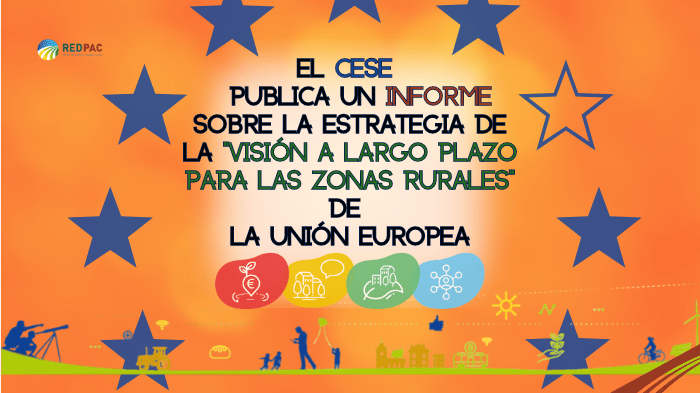
10 de July de 2024
Dinamización rural
Resiliencia y competitividad
The EESC calls for improved governance frameworks, annual evaluations, and targeted interventions, as well as adequate funding to support the Rural Action Plan.
- The European Economic and Social Committee (EESC) has issued an opinion calling for improved governance frameworks, annual evaluations and funding for the Rural Pact and its Action Plan for achieving the objectives of the 2040 long-term vision for European rural areas.
- The EESC proposes the signing of a European charter that includes rural rights, as well as an extension of the rural pact and its action plan beyond 2027.
The European Commission took stock last April of the strategy " A long-term vision for Europe's rural areas in 2040" , given that more than 30 months have passed, since 2021, since this strategy was launched, designed to achieve stronger, more connected, resilient and prosperous rural areas before 2040. To achieve this, a Rural Pact (to mobilize authorities and stakeholders) and a Rural Action Plan were launched , with thirty actions that the Commission had to implement in a series of areas of action of the European Union (EU).
Following this assessment, the European Economic and Social Committee ( EESC ) issued an opinion . on the implementation of the long-term vision for European rural areas. It expresses its support for the Vision and the Rural Pact, but calls for a series of improvements to its Action Plan to make it truly effective and sustainable in the long term.
Broadly speaking, the EESC calls for improved governance frameworks, annual evaluations, and targeted interventions, as well as adequate funding to support the Rural Action Plan.
Greater participation, better governance
The resolution issued by the EESC on 24 April 2024 highlights the following points:
- Calls for periodic evaluations of the Rural Action Plan to effectively respond to the needs of rural areas.
- It highlights the importance of a multi-level governance approach: ensuring that all stakeholders are involved at all levels to ensure the success of the Vision.
- Proposes the adoption of a European charter of rural rights and responsibilities .
- Calls on the Commission to establish a post-2027 rural development policy directly linked to the implementation of the Rural Action Plan and with sufficient funding to guarantee all the objectives of the Vision.
- They point to family structures, small and medium-sized enterprises and collective activities as priorities in future rural development policy.
- Highlights the role of the European Observatory for Rural Development as an entity created to collect and disseminate data related to rural areas in the EU to be used to develop rural policies and assess their impact on various policy fields (so-called rural proofing ) and to monitor progress on the Rural Action Plan and the Rural Pact.
- It highlights the need for increased EU funding for rural development, and the adoption of simplification measures to facilitate access to these funds.
- It emphasizes the role of local and regional entities in supporting rural stakeholders and facilitating local networking. Hence, the call for strengthening joint initiatives.
- It highlights the need for greater and better communication about the long-term vision to rural areas.
What is the EESC?
The European Economic and Social Committee (EESC) It is an advisory body to the EU composed of representatives of workers' and employers' organizations and other interest groups. It issues opinions on EU issues to the European Commission, the Council of the EU, and the European Parliament, and acts as a bridge between the EU's decision-making institutions and European citizens.
Their tasks are:
- Ensure that EU policy and legislation are adapted to economic and social conditions , seeking a consensus that serves the common good.
- Promote a participatory EU, giving a voice to workers' and employers' organizations .
- Promote participatory democracy and civil society organizations.
The EESC organizes events related to art and youth, among others , to bring the EU closer to its citizens.









